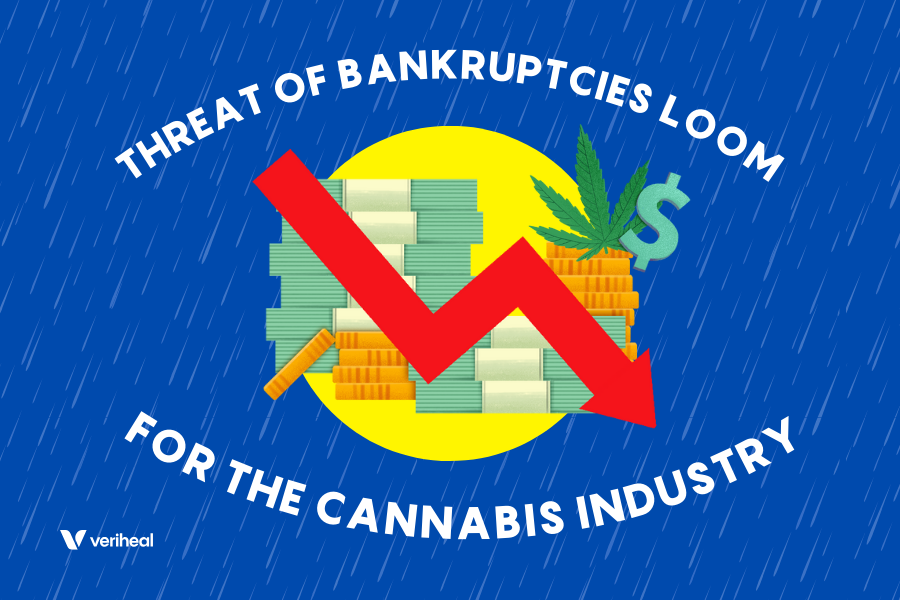As businesses across industries deal with price hikes and fear of an economic slump, recreational cannabis companies have too, felt the pain.
Thanks to legalization, cannabis production now outpaces demand in many cannabis-friendly states. As a result, these same states have experienced unprecedented drops in cannabis product prices. Cannabis businesses, experiencing a decrease in revenue, have had to make workforce cuts. Now, the industry at large must contend with how it will survive this worrying trend.
A Tale Of Two States: How WA & OR Regulated Themselves Into An Oversupply Problem
Understanding why the cannabis industry is facing an oversupply problem requires a look at two of the first states to legalize recreational cannabis — Oregon, and Washington. Despite taking two totally different regulation approaches, both states nonetheless ended up with the same oversupply problem. Understanding why that happened provides the blueprint for getting the cannabis industry out of this hole.
» Learn more about cannabis regulations.
Let’s start with Oregon. When it legalized the sale of cannabis in 2015, the state wanted to make sure that there would be enough supply to keep folks away from the black market. To do this, Oregon passed regulations giving growers access to out-of-state funding opportunities and flexibility with facility size Though well-intentioned, these regulations caused the industry to experience oversupply issues. The issue is so bad that The Oregon Liquor and Cannabis Commission reported an excess of approximately 3 million pounds of unused cannabis and 75,000 pounds of concentrates and extracts in February this year.
Clearly, the solution is to place limits on growing facilities and investment sources right? Well, not exactly. Let’s take a look at Washington.
Why You Should Get Your Medical Marijuana Card
Veriheal has satisfied millions of patients nationwide by giving them access to these benefits
- Larger purchase limits
- Peace of mind
- Enhanced legal protection
- Access to higher potency strains
- Save up to 25% on cannabis purchases
- Skip the line at the dispensary
Since the opening of its recreational market, Washington has held firm on regulations favoring small growers. Specifically, the state limits the size of growing facilities and prohibits out-of-state investments. This decision has placed Washington’s cannabis manufacturing industry in a unique position. Despite this, the state has had no trouble meeting consumer demand. In fact, the state actually has an oversupply problem. But why?
Just like Oregon, Washington also placed priority on ensuring consumer demand was met to ward off the black market. While both states have succeeded in reducing the profitability of illegal markets they have also put businesses in a tight spot. In Oregon, a pound of cannabis initially priced at $3,000 wholesale, now goes for $100 to $150. The same goes for Washington where cheap cannabis prices have remained even with the state’s high tax rates.
Cannabis Newcomers Michigan and Massachusetts Face Same Old Problems
Things are looking good for Michigan’s young recreational market. In July of this year, the state reached a record-breaking high in monthly cannabis sales of $276 million. Despite this headline-making victory, however, Michigan may soon face the same problems as Oregon and Washington if it does not make some regulatory changes.
Michigan, like the aforementioned states, wanted to stomp out the black market. To do so, Michigan took an incredibly lenient stance when it came to issuing grower and retail licenses. As a result, the state currently has 2,080 active licenses for recreational purposes, with over half belonging to class C growers or retailers permitted to have up to 1,500 plants.
Meanwhile, the story looks similar in Massachusetts, where rising competition and declining prices have ruined the viability of many dispensaries. Speaking with the Boston Globe, Kobie Evans, owner of Pure Oasis dispensary, expressed worries about the future of his investment. Highlighting the stark contrast between the early-days industry and the current reality, Kobie believes profitability appears elusive.
“It’s actually very, very scary,” Evans said. “When everyone was speculating about the industry, back in 2016, ’17, ’18, we all had these high hopes and all these grand expectations. The reality is setting in that there isn’t this pot of gold at the end of the rainbow,” he added.
Author, Share & Comments
















